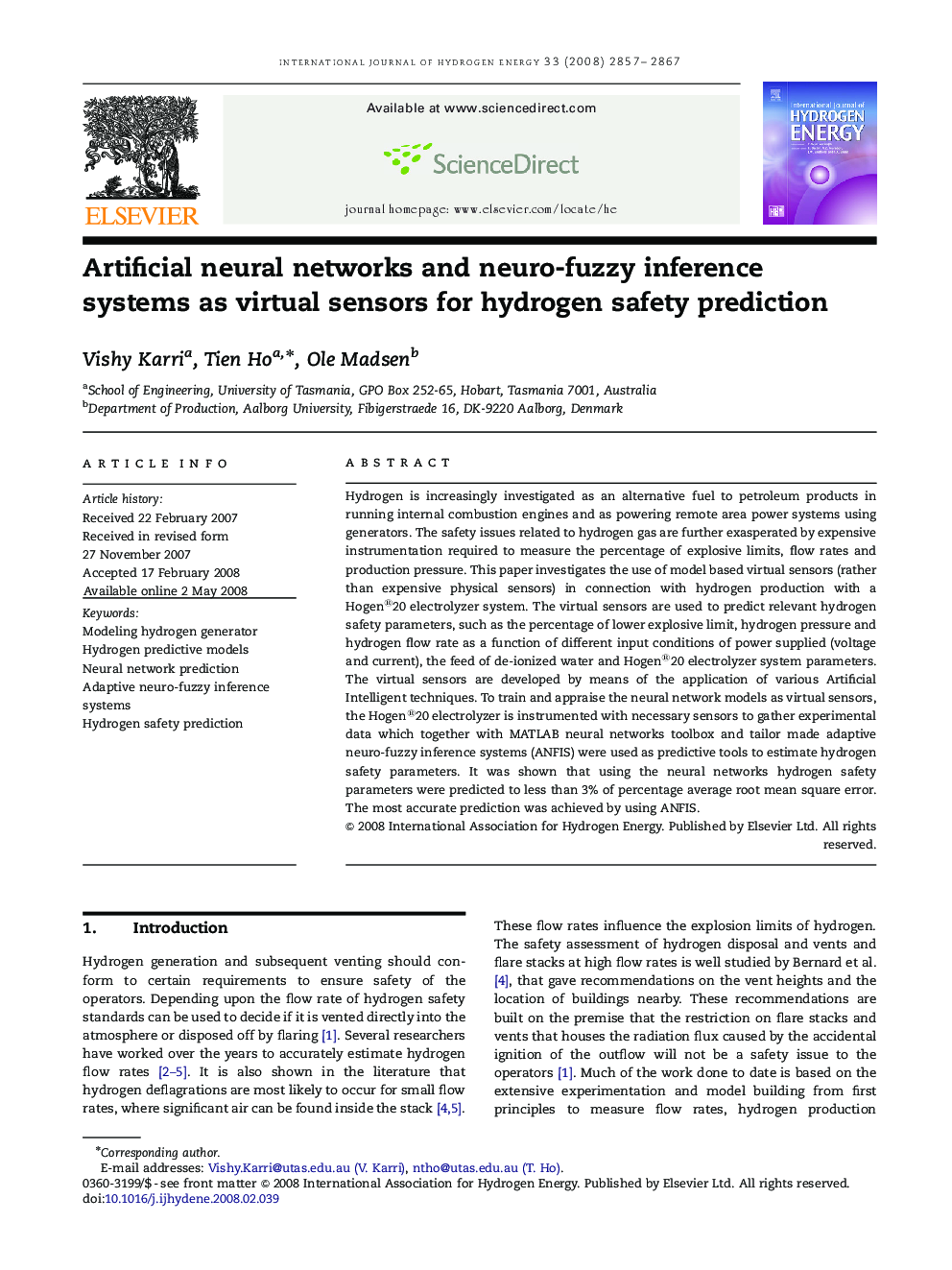| Article ID | Journal | Published Year | Pages | File Type |
|---|---|---|---|---|
| 1281568 | International Journal of Hydrogen Energy | 2008 | 11 Pages |
Hydrogen is increasingly investigated as an alternative fuel to petroleum products in running internal combustion engines and as powering remote area power systems using generators. The safety issues related to hydrogen gas are further exasperated by expensive instrumentation required to measure the percentage of explosive limits, flow rates and production pressure. This paper investigates the use of model based virtual sensors (rather than expensive physical sensors) in connection with hydrogen production with a Hogen®20 electrolyzer system. The virtual sensors are used to predict relevant hydrogen safety parameters, such as the percentage of lower explosive limit, hydrogen pressure and hydrogen flow rate as a function of different input conditions of power supplied (voltage and current), the feed of de-ionized water and Hogen®20 electrolyzer system parameters. The virtual sensors are developed by means of the application of various Artificial Intelligent techniques. To train and appraise the neural network models as virtual sensors, the Hogen®20 electrolyzer is instrumented with necessary sensors to gather experimental data which together with MATLAB neural networks toolbox and tailor made adaptive neuro-fuzzy inference systems (ANFIS) were used as predictive tools to estimate hydrogen safety parameters. It was shown that using the neural networks hydrogen safety parameters were predicted to less than 3% of percentage average root mean square error. The most accurate prediction was achieved by using ANFIS.
